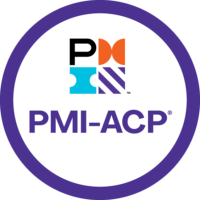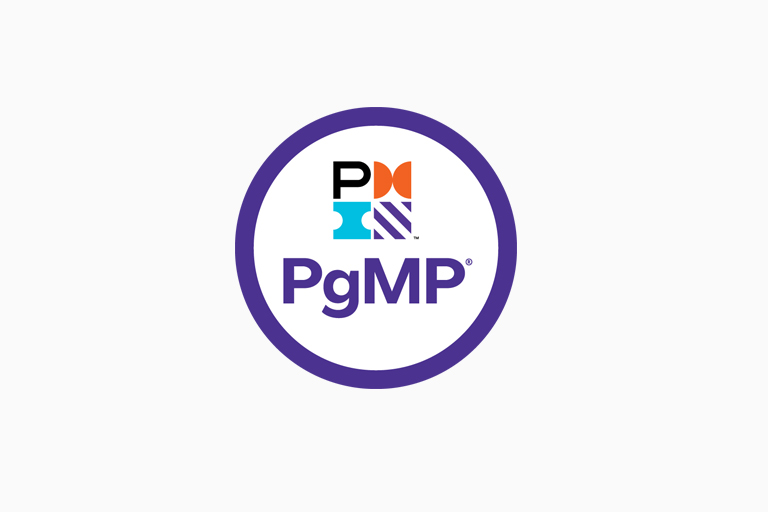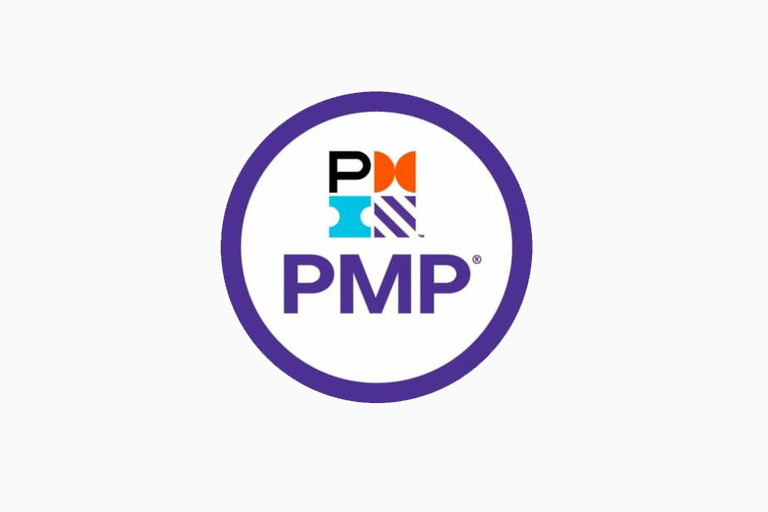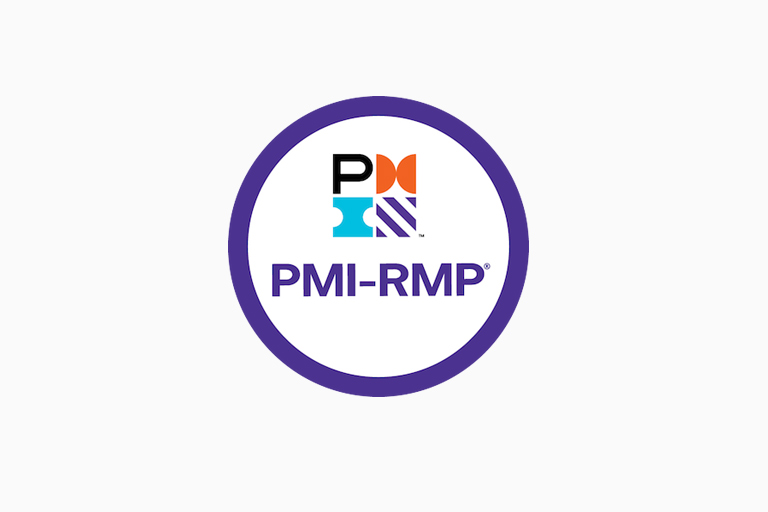PMI-ACP® is one of the fastest-developing certifications withinside the area of venture control and corporations are embracing “Agile” to be aggressive withinside the everchanging marketplace dynamics. Gaining the PMI-ACP® certification will increase your adaptability in Agile technology with a view to boom group productivity. Edureka’s PMI-ACP® Exam education path is designed to assist your adventure toward accomplishing this globally famend certificates and beyond.
Who Should Apply?
If you work on agile teams or if your organization is adopting agile practices, the PMI-ACP is a good choice for you. The PMI-ACP is evidence of your real-world, hands-on experience and skill as part of an agile team.
Gain and Maintain Your PMI-ACP
- The certification exam has 120 multiple-choice questions and you have three hours to complete it.
- To maintain your PMI-ACP, you must earn 30 professional development units (PDUs) in agile topics every three years.
Prerequisites
- Secondary degree
- 21 contact hours of training in agile practices
- 12 months of general project experience within the last 5 years. A current PMP® or PgMP® will satisfy this requirement but is not required to apply for the PMI-ACP.
- 8 months of agile project experience within the last 3 years
Why must you are taking PMI® Agile Certified Practitioner? Organizations which might be enormously agile, whole greater in their tasks efficiently than their slower-shifting counterparts - PMI 63% of hiring managers might inspire their mission managers to pursue an agile certification - PMI Average revenue of Agile Certified Practitioner is $101k - Indeed.com
Introduction to PMI-ACP
Learning Objectives: At the end of this module you will learn all about
PMI-ACP exam which includes; latest exam content, Eligibility criteria, Application process and fees structure and other relevant knowledge required to appear and pass the exam.
Topics: Following is the list of topics to be covered in this module-
- About PMI & ACP
- ACP Exam & Eligibility
- PMI-ACP Application Process Overview
- The Seven Domains and their overview
- The weightage of questions in the seven domains
- Tools & Techniques
- Knowledge & Skills
Agile Principles and Mindset
Learning Objectives: At the end of this module you will learn the required knowledge of Agile Principles, Manifesto, its fundamental values and different methodologies to practice agile thinking.
Topics: Following is the list of topics to be covered in this module -
- 9 Tasks
- Why Agile
- Agile Manifesto
- Agile Principles
- Agile Methodologies, Frameworks and processes
- Agile Leadership
Value Driven Delivery
Learning Objectives: At the end of this module you will learn the tools and techniques of maximizing business value through prioritization, incremental delivery, adjusting risks and frequent testing and feedback. You will also learn the various low-tech high touch tools used in an agile project. You will also learn the concept of Agile contracting and the various types of contracts prevalent for agile projects.
Topics: Following is the list of topics to be covered in this module -
- 14 Tasks
- Agile Value Proposition
- Frequent and Incremental Delivery
- Value Assessment & Economic models
- EVM for Agile Projects
- Little’s law
- Prioritization
- Minimal Marketable Product
- Factor Risk Reduction efforts into Product Backlog
- Frequent Verification and Validation
- Agile Tools
- Agile Contracting
Stakeholder Engagement
Learning Objectives: At the end of this module you will learn the benefits of engaging stakeholders in the project. You will also learn how to establish a shared vision, various collaboration techniques, effective communication and interpersonal skills.
Topics: Following is the list of topics to be covered in this module -
- 9 Tasks
- Identify and engage empowered business stakeholders
- Share project information frequently and throughout the project with stakeholders
- Ensure stakeholder’s involvement through working agreements
- Agile Chartering
- Agile Modelling
- Manage Stakeholder’s Expectation through shared vision, shared understanding of success criteria, transparency on project status and forecasting.
- Communication & Knowledge Sharing
- Collaboration
Team Performance
Learning Objectives: At the end of this module you will learn all about a high performing agile team. This includes Agile Roles, Team Rules, Generalized Specialists, Team space, Technical and interpersonal skills, Team development, mentoring and coaching, Team Performance measurement, Team empowerment and emerging leadership.
Topics: Following is the list of topics to be covered in this module -
- 9 Tasks
- Agile Team Roles
- Building an Agile Team
- Characteristics of High-Performing Team
- Cockburn’s Skill Mastery Model (Shu-Ha-Ri)
- Dreyfus Skill Acquisition Model
- Tuckman’s Team Formation Model
- Team Motivation
- Empowerment and Emerging Leadership
- Training, Coaching & Mentoring
- Collaborative Team Space
- Communication and Knowledge Sharing
- Team Performance Metrics
Adaptive Planning
Learning Objectives: At the end of this module you will learn the Agile multi-level planning process, Sizing and Estimation, Tools & Techniques, Progressive Elaboration, Rolling Wave Planning, User Stories, Time Boxing and other agile concepts related to adaptive planning.
Topics: Following is the list of topics to be covered in this module -
- 10 Tasks
- Agile vs Predictive planning
- Principles of Agile planning process
- Progressive Elaboration & Rolling Wave Planning
- Value based analysis and decomposition
- User Stories
- Product Backlog
- Timeboxing
- Agile Sizing & Estimation
- Tools & Techniques
- Multi-Level Planning (High Level, Release, Iteration)
Problem Detection & Resolution
Learning Objectives: At the end of this module you will learn the agile practice to identify, resolve and prevent issues and threats early in the project and throughout the project. You will also learn the concepts of cost of change, escaped defects, Technical Debt, Cycle Time & Lead time, Risk-adjusted backlog and Risk burndown graph.
Topics: Following is the list of topics to be covered in this module -
- 5 Tasks
- Problems and their impact on Project
- Create Open & Safe Environment
- Agile Metrics (Lead Time, Cycle time, Throughput, Productivity, Defect Rate)
- Problem Detection
- Problem Solving
- Risk Management Life Cycle
- Tools & Techniques
Continuous Improvement (Product, Process, People)
Learning Objectives: At the end of this module you will learn how the Agile team focuses on continuous improvement on the product, processes as well as the team through process analysis and tailoring, feedbacks, reviews and retrospectives. You will also learn the PMI Codes of ethics and Professional Conducts expected from you as an Agile practitioner.
Topics: Following is the list of topics to be covered in this module -
- 6 Tasks
- Continuous Improvement - Process
- Process Analysis
- Value Stream Mapping
- Continuous Improvement – Product
- Product Review & Feedback
- Continuous Improvement – People
- Retrospectives
- Tools & Techniques
- PMI’s Code ethics and Professional Conduct
Exam Tips and Related Readings
Learning Objectives: This is a specially designed module, which will help you to understand the PMI-ACP Exam question patterns and the tips to address them. We will also guide you with a study plan, which you may follow to pass your exam. It will also contain a list of materials and online links, which you may refer for further reading to enhance your knowledge and skills.
Topics: Following is the list of topics to be covered in this module -
- Exam Question patterns
- Study Plan
- Exam Tips
- Related Readings.





Reviews
There are no reviews yet.